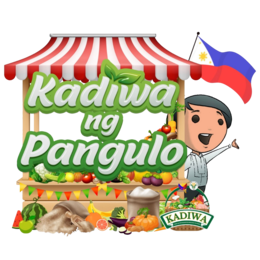
Making money out of waste:
BAGORGANIC WAY
Blessed C. Bagor is a 26-year-old resident at Labason, Zamboanga del Norte. He took up Bachelor of Science in Business Administration with a major in Financial Management at the Jose Rizal Memorial State University – Tampilisan Campus. He has been working in different companies as a sales representative until he lost his job due to the COVID-19 pandemic and its travel restrictions. He decided to focus on his family with his youngest son, who has a Glucose-6-Phosphate Dehydrogenase (G6PD) disorder.
The eureka moment
Selling kakanin, spices, vegetables, fruits, and other products helped his family thrive and survive during the pandemic. Together with his partner, he kept looking for extra sources of income until they saw a pile of garbage. Feeling a light bulb moment, they collected the said pile in their backyard and decided to do composting.
Bagorganic Way started as a result of improper waste disposal in his neighborhood. The majority of waste, usually organic waste and plastic, are left cluttered in the backyard pits. This resulted in garbage everywhere, clogging drainage canals, and dirty water soaking their house floor. Inspired by India’s Rise Foundation, a non-government organization which managed to clean even the dirtiest villages and turn them into zero waste, productive villages, Bargorganic Way aims to replicate this strategy in every local community in the Philippines to help manage the solid waste disposal in the country and eradicate pollution while also earning money.
It took Bagor time to completely understand the process and to be tolerant of the rotten smell. While their composting is in progress, they started to look for compost buyers. They were in luck as most of the plantitos and plantitas, who boomed during the imposition of the community lockdowns, are looking for this kind of product. Bagor believed that this is the way to solve problems with waste management while also making money to feed his family.
Offering quality composts
Bagorganic Way’s flagship product is its natural compost soil, which follows a natural method of decomposition process. It can be used as soil conditioner or soil enhancer on both crops and ornamentals.
The enterprise also makes organic waste compost, liquid fertilizer, natural pesticide, and other gardening supplies derived from organic waste. It looks forward to processing 50,000 kilograms of organic waste monthly to reduce garbage pollution. Vermicast, the end-product of the breakdown of organic matter by the African night crawler, will be converted into worm tea or vermin tea to generate more profit. Liquid fertilizers are sourced from indigenous herbs (dynamic accumulators), food waste, vegetable scraps, and residues from crops, seaweeds, seafoods, and fish byproducts. Coco peats, on the other hand, come from coconut husks and rice hulls from rice milling byproducts.
Bagor’s future plan is to produce healthy and delicious organically grown vegetables that will cater to the municipality.
Bagging achievements after achievements
The Department of Agriculture’s (DA) Young Farmers Challenge Fund (YFCF) Program helped Bagor financially, allowing him to purchase all the necessary tools and equipment for his composting journey. He was also able to test all the possible ways to produce quality products at modest production cost.
For Bagor, winning the competition as one of the Zamboanga Peninsula Region’s representatives is a blessing that boosts his family’s moral support and his project’s chances of success in the near future. Unlike previous start-ups, he found it difficult to look for early adopters to try the product. But now, more people from their locality want to get their first try of his product.
He is thankful to the DA for its YFCF Program as it offered him valuable training, seminars, and even opened doors of opportunities in this trying time. ###

